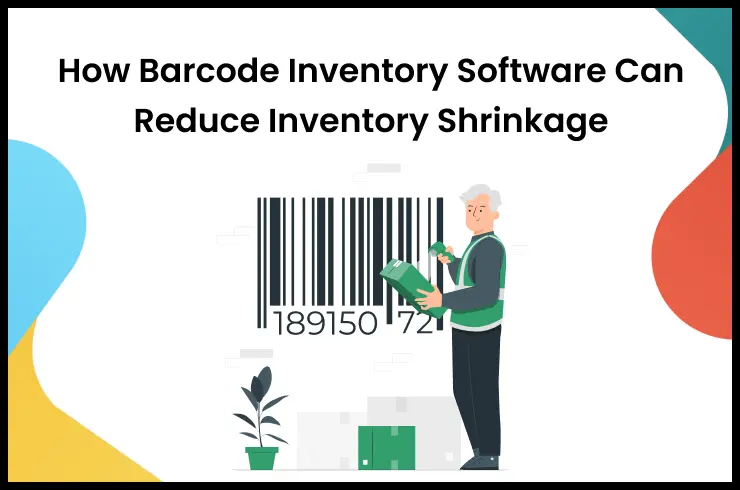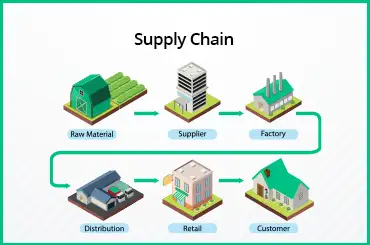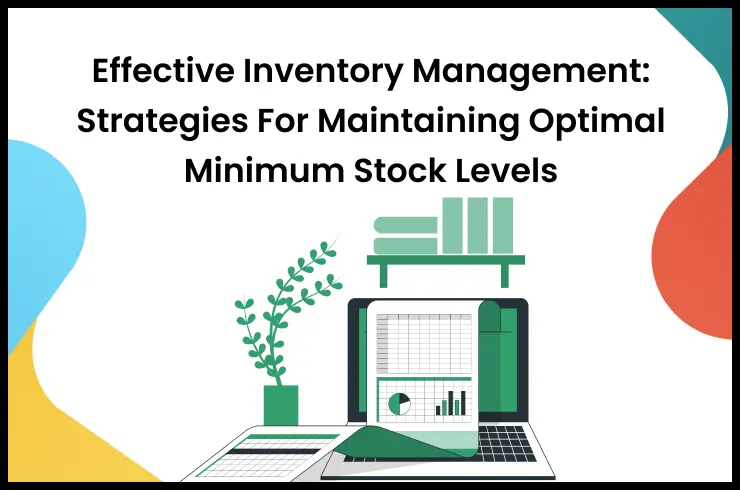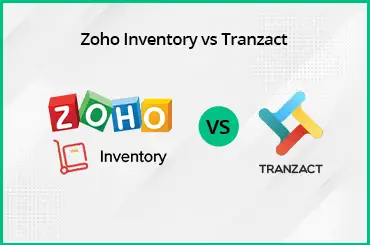Manufacturing businesses need the right inventory management software to increase their sales and revenue. This technology can reduce manual tasks and simplify the inventory management process. Managing inventory with accurate data is one of the most important steps in any industry.
In this blog post, you will learn why inventory management software is a must for manufacturing businesses and 7 factors you should consider when choosing the right fit for your business.
What is an inventory management software?
An Inventory management software is a tool used to track inventory and check inventory levels, orders, sales, and deliveries. This software is easy to use and shows the complete overview of inventory items. It helps you manage inventory better using features like bill of materials, etc.
With inventory management software, businesses can increase their ROI and avoid product overstock or stockouts. It is a better alternative to hard-copy data or spreadsheets. Manual keeping requires much effort and may result in human errors, too. On the other hand, this software automatically updates the inventory with the latest information in real time.
Importance of Inventory Management
You can grow your manufacturing business if the operations are well maintained. Inventory management software plays an important role in that. If you are a manufacturer who spends hours making spreadsheets or maintaining hard copies for inventory management, here are some reasons why inventory management software is important for manufacturing businesses:
1. Versatility
The software can be designed to suit your needs and help your employees track items accurately. Its versatility makes adjusting and adapting to various industry sizes easier and helps them better in inventory management.
2. Free Trial
Some providers even offer inventory management software on a free trial basis. This free trial can help you understand its importance better. Once you know this software is excellent for your business, you can select paid providers per your needs.
3. Budget
Manufacturers looking for budget inventory management tracking solutions can select affordable inventory management software. With multiple reliable providers, manufacturers can choose the one with excellent services and better prices.
4. Connectivity
B2B Inventory management involves connectivity or transfer of information between various departments. This way, each department can work better with regular updates and timely notifications about inventory items.
5. Flexibility
Inventory management software can help manufacturers understand what changes are required and help them adjust accordingly. This adds flexibility in the supply chain implementation, updates, and usage.
6. Customization
Small to medium-scale manufacturing businesses especially need customization. They need the software to work as they want. Inventory management software is easily customizable and gives you only what you want.
7. Understanding
Some management software for inventories is user-friendly and easy to work with. One can select software that can be learned using a few trials and are not complex, such as TranZact.
8. Customer Support
This inventory management software also comes with customer support that guides manufacturers in case any problems arise. Customer support can immediately solve issues and have less wait time to maintain workflow.
Benefits of using an inventory management system
Inventory management software can help manufacturers forecast demands and predict future sales. Here are some of the benefits of an inventory management system:
1. Saves Time
Inventory management software can help businesses to perform complex tasks in a very short period. This can help you save a lot of time.
2. Better Planning
With the latest technology, manufacturers can use such applications to improve performance and planning. Businesses can plan orders based on demands and manage them per the market's needs.
3. Prevents Stockouts
The software gives you a better understanding of products and their demands. This helps you avoid stockouts and overstocking using inventory management software.
4. Improved satisfaction
Vendor satisfaction is directly related to timely product delivery. With inventory items availability and management, manufacturers can deliver products on time.
5. Accurate Reports
Inventory management applications are better at report updation and management. It can help manufacturers get more accurate report management.
6. Better management
Inventory management software is helpful in warehouse management. Manufacturers can use it to manage inventory for their warehouses properly.
7. Better Performance
With inventory items available as per demand, businesses can increase their overall revenue. It also helps businesses to improve the performance of their supply chain.
Key features of an Inventory Management System
The inventory management system is an organized platform that manages and checks inventory items. It helps businesses identify which items are in demand and which are sitting on the shelf longer. Here are a few key features of an inventory management system:
- Inventory management systems are cost-effective and user-friendly.
- They are customizable as per your business needs and business size.
- It can help businesses transfer inventory item-related information among various departments.
- Inventory management systems are machine-based; therefore, there is no human error.
- These systems are better alternatives to avoiding manual, time-consuming, and complex tasks by using a management system.
7 Factors to look for when choosing inventory management software
Before selecting any inventory management software, it is important to understand the features and benefits an application offers its users. Here is a list of seven factors to consider before choosing software for inventory management. Let us take a look at them:
1. Cost And Budget
Inventory management software is available in every price range. The higher-price software is suitable for more complex solutions. The affordable ones have limited features to solve day-to-day challenges. Cost and budget are important factors to consider before finalizing any software for the business.
2. Customizations
The type of customization you need depends on the business model. Businesses that want various features per their needs and demands can use customizations to help applications adapt.
3. Business Size
Inventory management software must be able to grow as businesses scale. Software providers should fulfil needs and support increases in revenue and sales with advanced solutions. The inventory management software you select should adapt to your business size and help you grow accordingly.
4. System Support
System support is an important factor if you want to use software for inventory management. Businesses can learn and use inventory management applications better with practical customer support, easy templates, and a dedicated customer relationship manager.
5. Extra Features
Manufacturing businesses should select the inventory management software that offers the most features at the best price. Inventory item tracking, barcode solutions, multilocation support, and regular updates via notifications are a few features most software offers.
6. Software Reviews
The easiest way to select the best software is to look for the reviews. Online inventory management software has hundreds of reviews from recent users. They can help you understand which software is better for your business.
7. Cloud-Based
Manufacturers should select a cloud-based inventory management software. Such software can be used from any location and has a data backup for its files. It offers safety for data stored in the software and can become more secure and reliable in the future.
5 Tips for choosing the right inventory management system
With multiple options available to select the right inventory management software for small business, usually find it challenging to pick the right one. Here are five tips business owners can follow to choose the right software for their business:
- Select a software for inventory management that offers the features you need.
- The software should be suitable for your budget.
- Always research available inventory management software.
- Learn about its features to understand which software you need.
- Select the cloud-based software that offers the most features at a lower cost.
- Always check the software's online reviews to understand other users' experiences.
How to pick the best inventory management software for your business?
The best inventory management software for business can be easily customized, is affordable, cloud-based, and offers the most features. Manufacturers can find the right fit for them by researching the available inventory management software and comparing them with their needs. It is important to follow a budget and select the right fit for software that is easy to use. The right software is designed to fulfill vendors' needs and help businesses reach their desired revenue goals quickly.
How TranZact can help you streamline your inventory management
Businesses can simplify inventory management with the correct use of software. Inventory management software can make inventory management productive and much faster. With TranZact, manufacturers can quickly resolve inventory management issues in a few simple steps and save much money and time. Understand your business needs and resolve them with the right software to streamline your business.
FAQs
1. Which software is recommended for inventory management?
Every inventory management software offers benefits for different industries. Software providers such as TranZact are good for Indian SME manufacturers who are looking for affordable and customizable options.
2.Why do you choose an inventory management system?
An inventory management system is important for better tracking of inventory items and order management. It also helps in the transfer of data between various departments.
3.What are the four types of inventory management systems?
Here are the four types of inventory management systems:
- Just In time management(JIT)
- Materials Required Planning(MRP)
- Economic Order Quantity(EOQ)
- Days Sales of Inventory(DSI)
4.What are the central inventory management issues?
The most common central inventory management issues include overstocking or stockouts of inventory items. Such problems arise due to bad forecasting of demands and can cause business revenue loss.
5.What are the five tools of inventory management?
The most important Inventory management tools are
- ABC analysis
- FIFO and LIFO
- Barcode Reader
- Inventory Tracking
- Inventory Control Software
6. What Are the Various Inventory Tracking Techniques Used? Which Technique Is Best?
Every business uses different methods of inventory tracking techniques. It depends on businesses and their specific needs. Some inventory management techniques include demand forecasting, ABC analysis, safety stock, reorder points, and PAR levels. Demand forecasting isone of the most used inventory tracking techniques.















